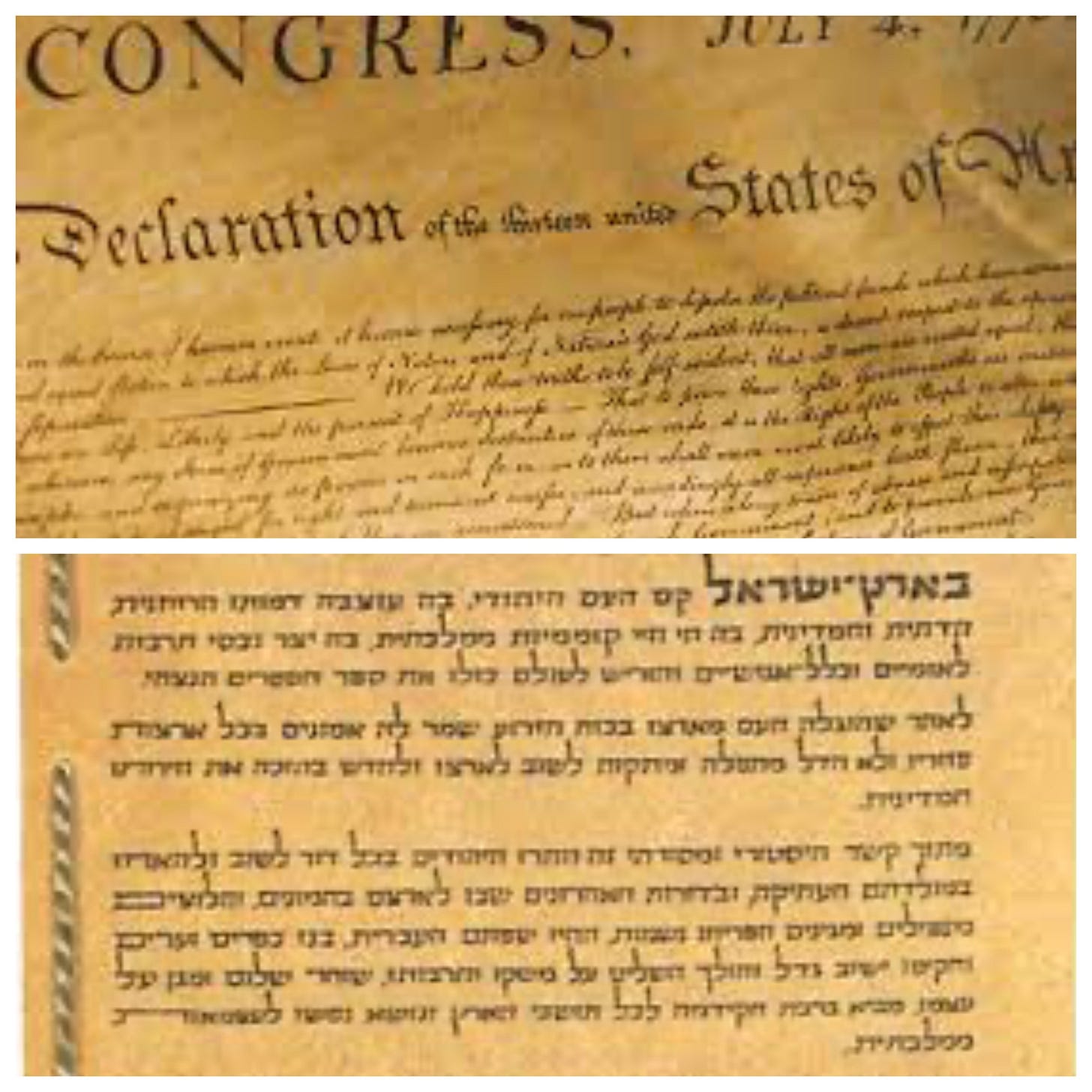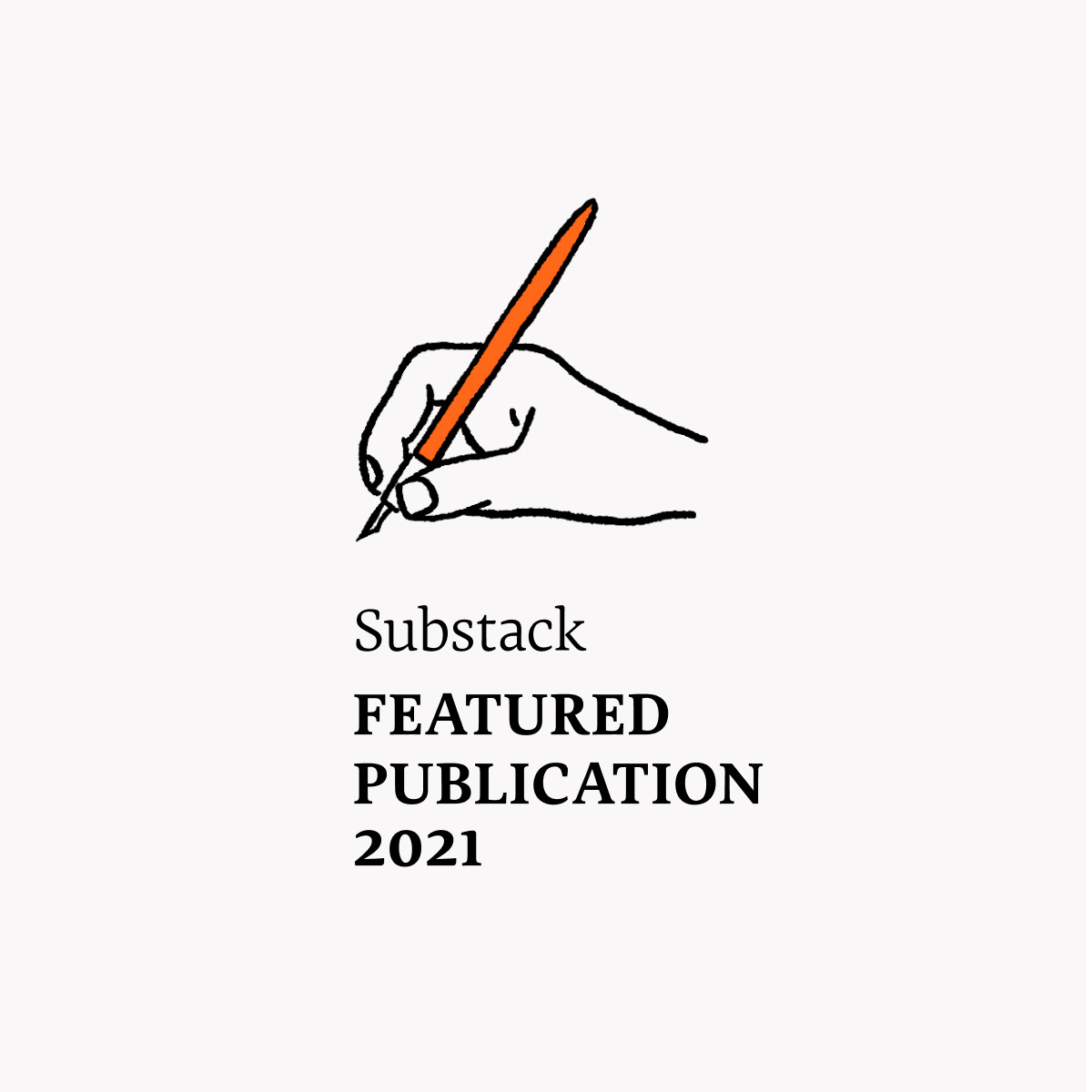How Thomas Jefferson and a Conservative Rabbi helped write Israel's Declaration of Independence
In honor of July 4th -- How the American Declaration of Independence shaped Israel's
Why is God not mentioned in the Israeli Declaration of Independence? Does it have to do with the passionate ideological secularism of most of Israel’s founders? For those familiar with America’s Declaration, God’s absence from Israel’s feels all the more peculiar, given how often “Nature’s God,” the “Creator” and “Supreme Judge” are found in the Declaration of Independence of the United States.
There’s an urban legend of sorts which claims that God isn’t entirely absent from Israel’s Declaration, and that the final paragraph is, in fact, a nod in God’s direction. According to this tale, the secularists, the Bible-loving-but-God-rejecting David Ben-Gurion chief among them, were adamantly opposed to including in the Declaration a God they were certain did not exist (but Who, they nonetheless believed, had given the Land of Israel to the People of Israel). But religious Zionists, it is said, wouldn’t cave on that point, so a compromise was reached. The Declaration would include the phrase “Rock of Israel”, taken from the morning [shacharit] liturgy. The secularists could interpret “Rock of Israel” as the strong arm of the Haganah, the vital spirit of the state-builders or however they wished, while the religious signers could be comforted by the fact that just as “Rock of Israel” means “God” in the liturgy, so too, it (for them) meant God here, too.
It’s a great story, ubiquitously repeated almost anytime one discusses the Declaration of Independence. The only problem with it is that it’s totally false.
So, in honor of America’s celebration of its independence this weekend, here’s a brief and more accurate version of what happened, including the fascinating way in which Thomas Jefferson and a Conservative rabbi were actually responsible for the inclusion of “Rock of Israel” in Israel’s Declaration.1
It turns out that the American declaration of independence was the subject of its own push-me-pull-you of secularism versus theology tension. Thomas Jefferson, who was the author of the DoI, apparently wanted the declaration to read near its end, “And for the support of this Declaration, we mutually pledge to each other our Lives, our Fortunes and our sacred Honor.” Some of those early American theists, though, religious in some vague sense but not passionately theological, felt that God ought to make an appearance at the end, just as God, Creator and Judge appear earlier. So Jefferson added the phrase “with a firm reliance on the protection of Divine Providence” into the phrase above, so that the version we have all inherited reads “And for the support of this Declaration, with a firm reliance on the protection of divine Providence, we mutually pledge to each other our Lives, our Fortunes and our sacred Honor.”
One hundred and seventy-two years later, David Ben-Gurion was getting ready to do more or less what Thomas Jefferson and his compatriots had done. He was going to declare independence from the British and would found a country. The British were going to be leaving on May 14 and among many other decisions (including whether to declare a state, as we discussed in an earlier posting, “The National Liberation Movement of the Jewish People”) and preparations, a Declaration had to be written. The task was eventually passed down to one Mordechai Behm, who had formerly worked as a lawyer for the British Mandatory authorities, but had then left to join his father’s thriving law practice.
Behm apparently got the assignment in the middle of Passover, 1948, just a few weeks before the presumed date of Independence. Not having much of an idea of where to begin, he shared his dilemma with his family at a Shabbat meal on April 24. They suggested that he seek the advice of a certain neighbor named Harry Solomon Davidowitz.
Davidowitz was a colorful personality. Born in Europe (where he’d received a robust Jewish education), he’d made his way to America, where he gained an excellent Western education and furthered his Jewish learning. He got a BA in sociology and economics from Columbia, and an MA and Rabbinic Ordination from JTS, thus becoming a Conservative rabbi. He eventually traded in his rabbinic and theological life for Zionism, moved to Palestine and apparently rid himself of most of his religious practice and belief, except for his unerring certainty that God had given the land of Israel to the Jews. (As we noted, Ben Gurion was not dissimilar in believing that the Bible, which he did not think God wrote, was irrefutable proof that the Land of Israel belonged to the Jews … those early Zionists were complicated.)
It was to the home of this Rabbi Davidowitz that Mordechai Behm went, seeking help. Davidowitz, a passionate Americanophile, taught Behm about Jefferson’s Declaration. Behm began to copy long sections of it, eventually translating parts into Hebrew. When he got to translating “firm reliance on the protection of Divine Providence,” he was stumped. There is really no good way to render that into Hebrew, and after Behm had experimented with all sorts of clumsy and unsatisfying options, Davidowitz suggested that he use the phrase from the liturgy (which Behm, a secularist, might well have never heard before), “Rock of Israel.”
That’s how it got in … not as a compromise at the end, but from the very beginning.
The draft of the declaration would undergo numerous revisions, succumbing at the very end to Ben-Gurion’s dictatorial pen, but somehow, “Rock of Israel” survived all the cuts and edits. It was, indeed, a compromise between religious and secular – but not in 1948. It was a compromise from 1776.
So, with that little tidbit about the intersection between the two Declarations of Independence, wishes to all who are celebrating a fun and meaningful July 4 weekend.
A brief ironic (sad?) coda to the story. Behm kept many of the early drafts of the Declaration in his home, and after he died, his family decided to auction them off—they would clearly be worth quite a bit of money. Israel’s National Archive sued to block the auction, and the Supreme Court sided with the Archives, ruling that the papers the Behm family had had in their home for some 70 years were rightly the. property of the state and needed to be given to the National Archive.
That is where they are today.
Starting shortly, some posts will be available solely to subscribers, while some will still be accessible for all. Subscribers will also have access to the entire archive and to our weekly podcasts.
Two of the best sources about the origins of Israel’s Declaration of Independence are Yoram Shachar, “The Early Drafts of [Israel’s] Declaration of Independence,” in Iyyunei Mishpat [Tel Aviv University Law Review], November 2002, Vol. 26(2), pp. 523-600, available here online for anyone interested in reading a 78 page law review article in Hebrew], and Israel Dov Elbaum, Megilat Ha’Atzmaut: The Declaration of Independence with an Israeli Talmudic Commentary, [Yediot Ahronot Books and Chemed Books, 2019], esp. pp. 527-534 [in Hebrew]. The story about Davidowitz and Behm is based primarily on Shachar’s work.
Nice news this week that Israel from the Inside was selected as a Featured Substack Publication. (For this week only, see substack.com/home.)
Israel from the Inside is for people who want to understand Israel with nuance, who believe that Israel is neither hopelessly flawed and illegitimate, nor beyond critique. If thoughtful analysis of Israel and its people interests you, welcome!
Our twitter feed is here; feel free to join there, too.





